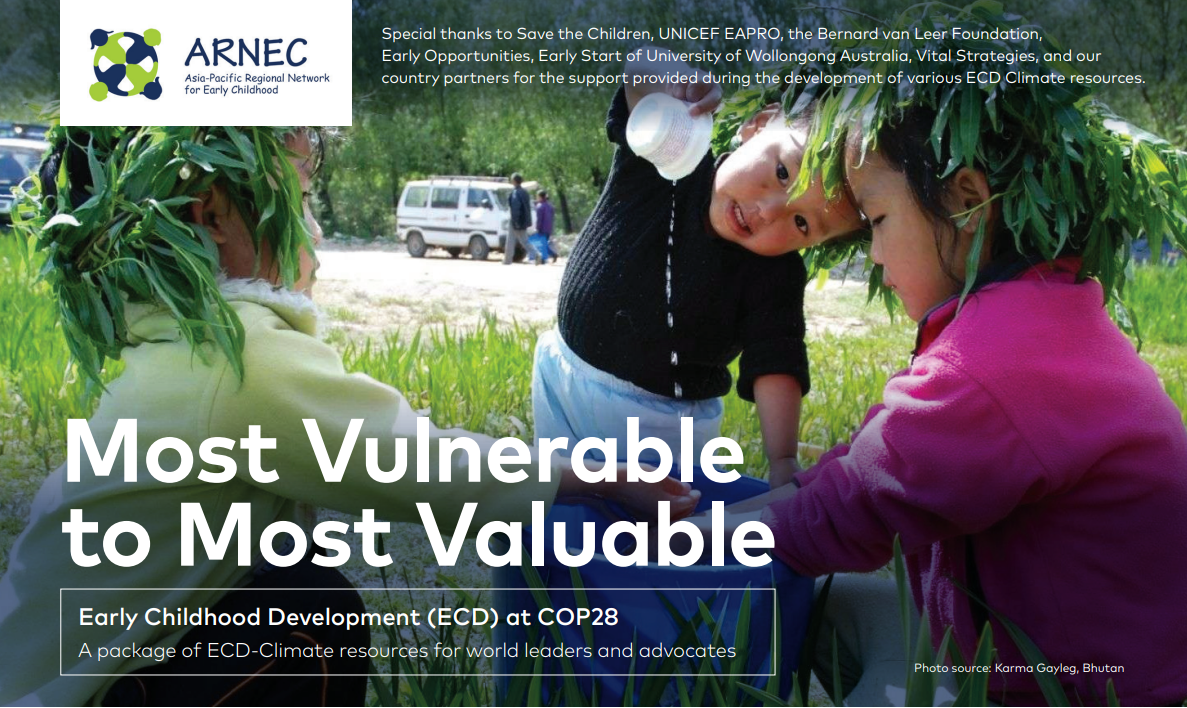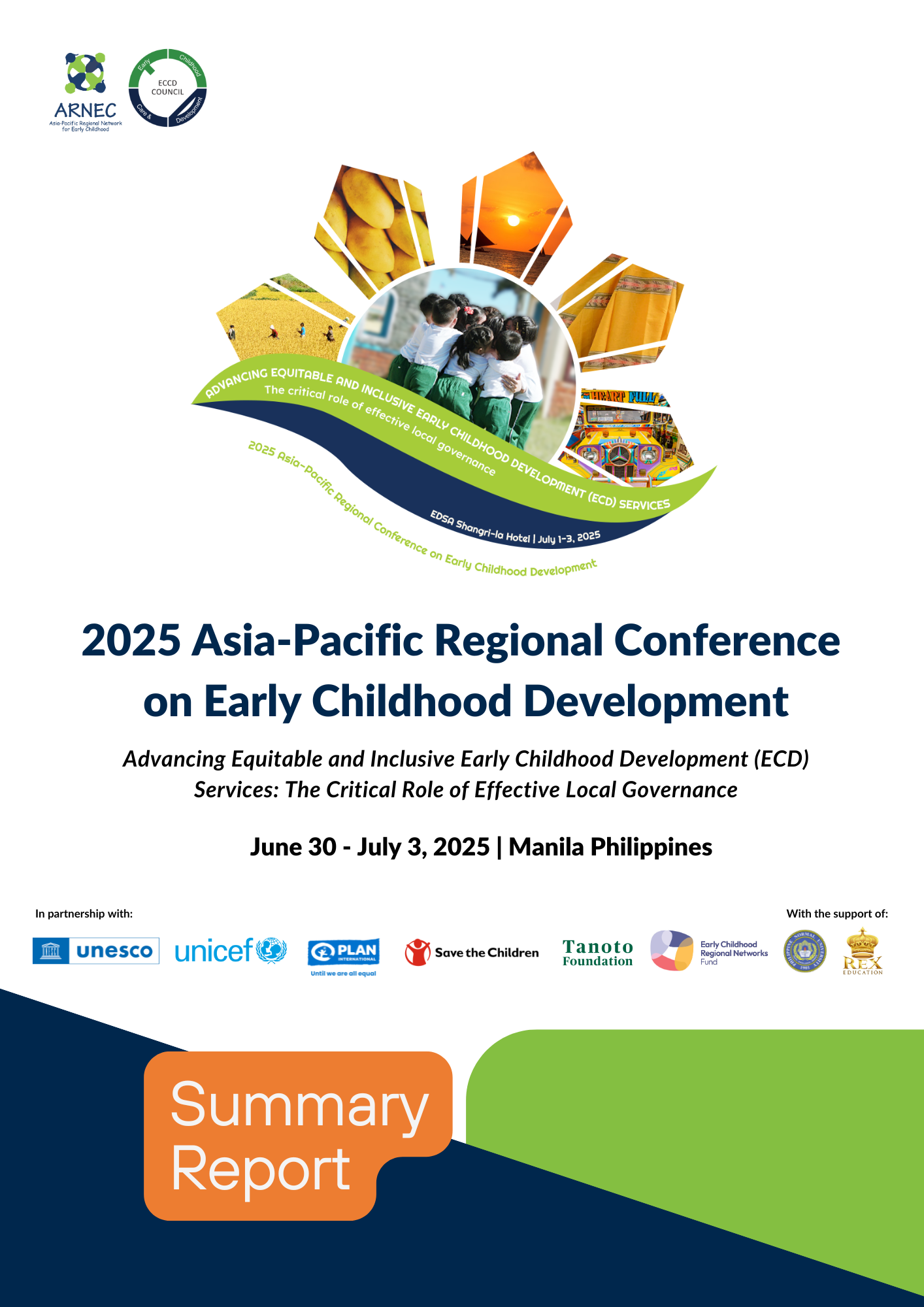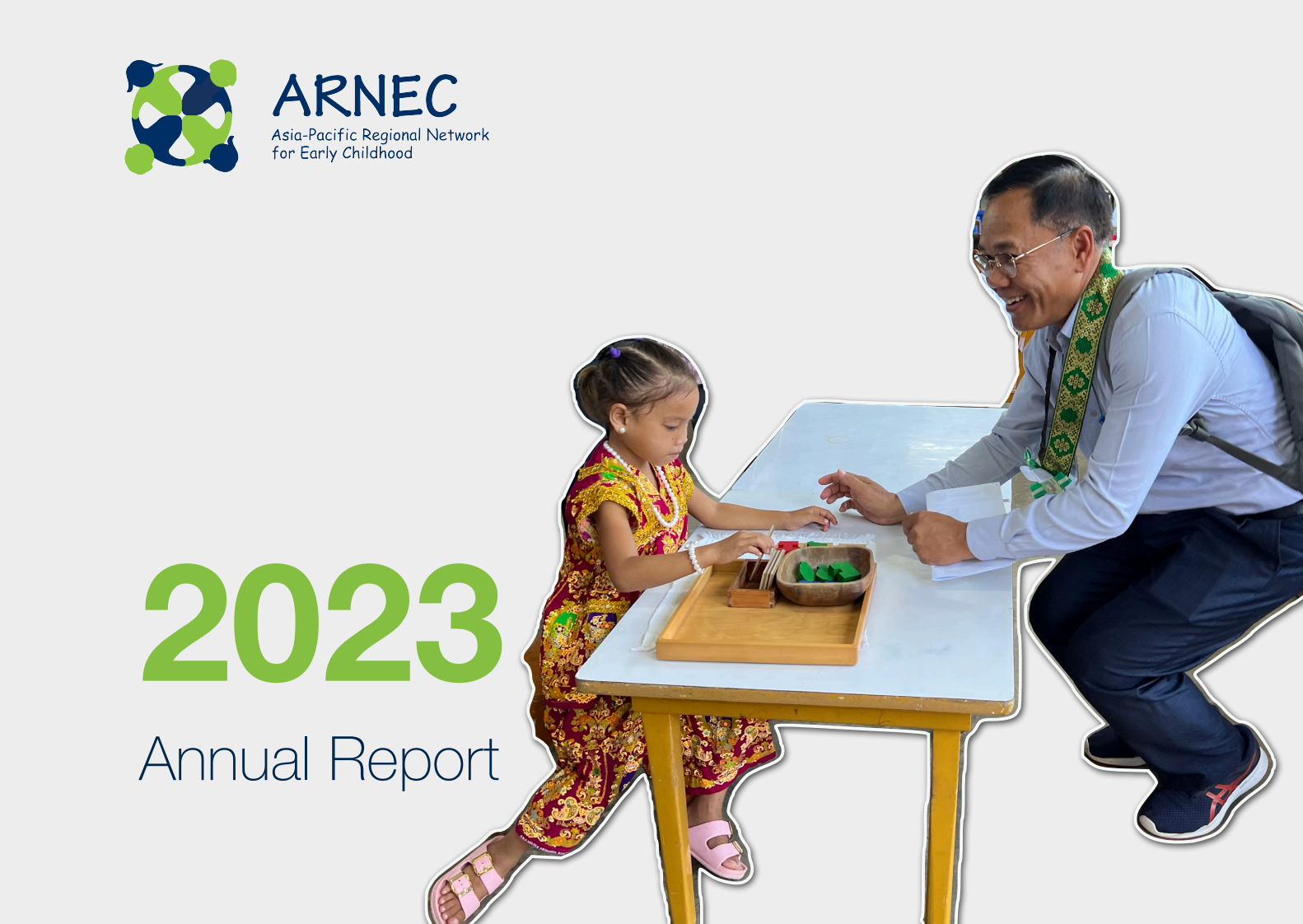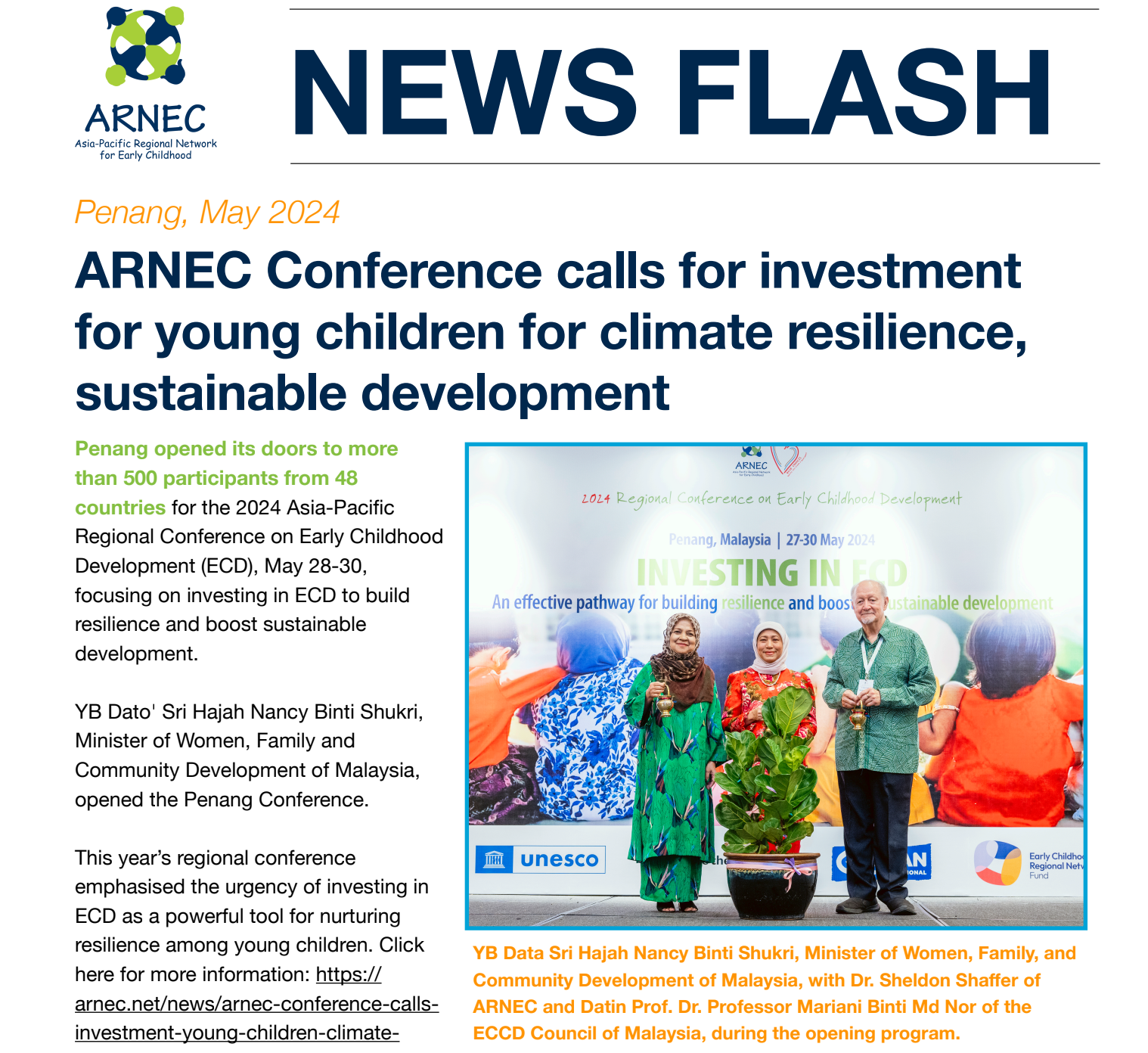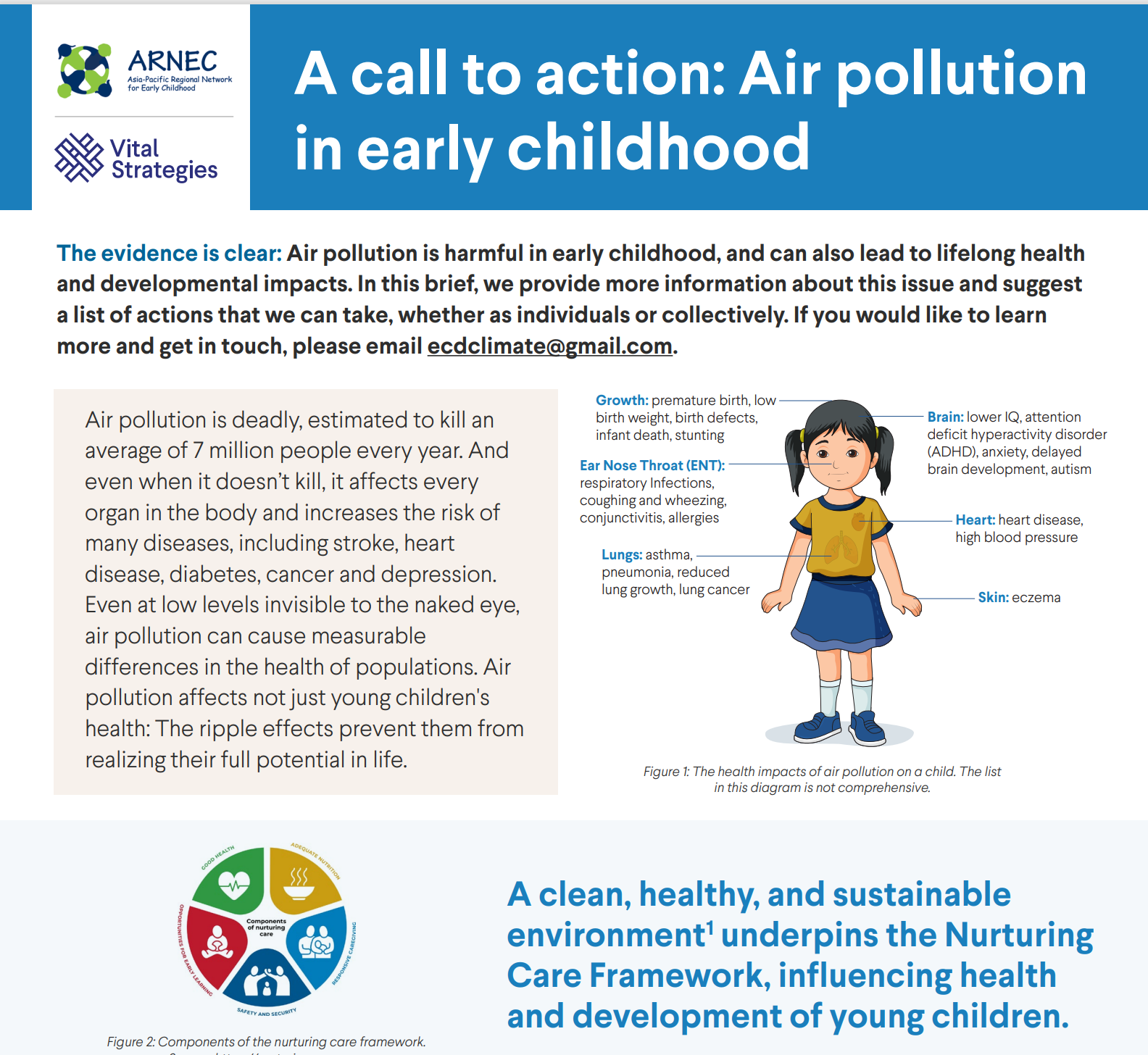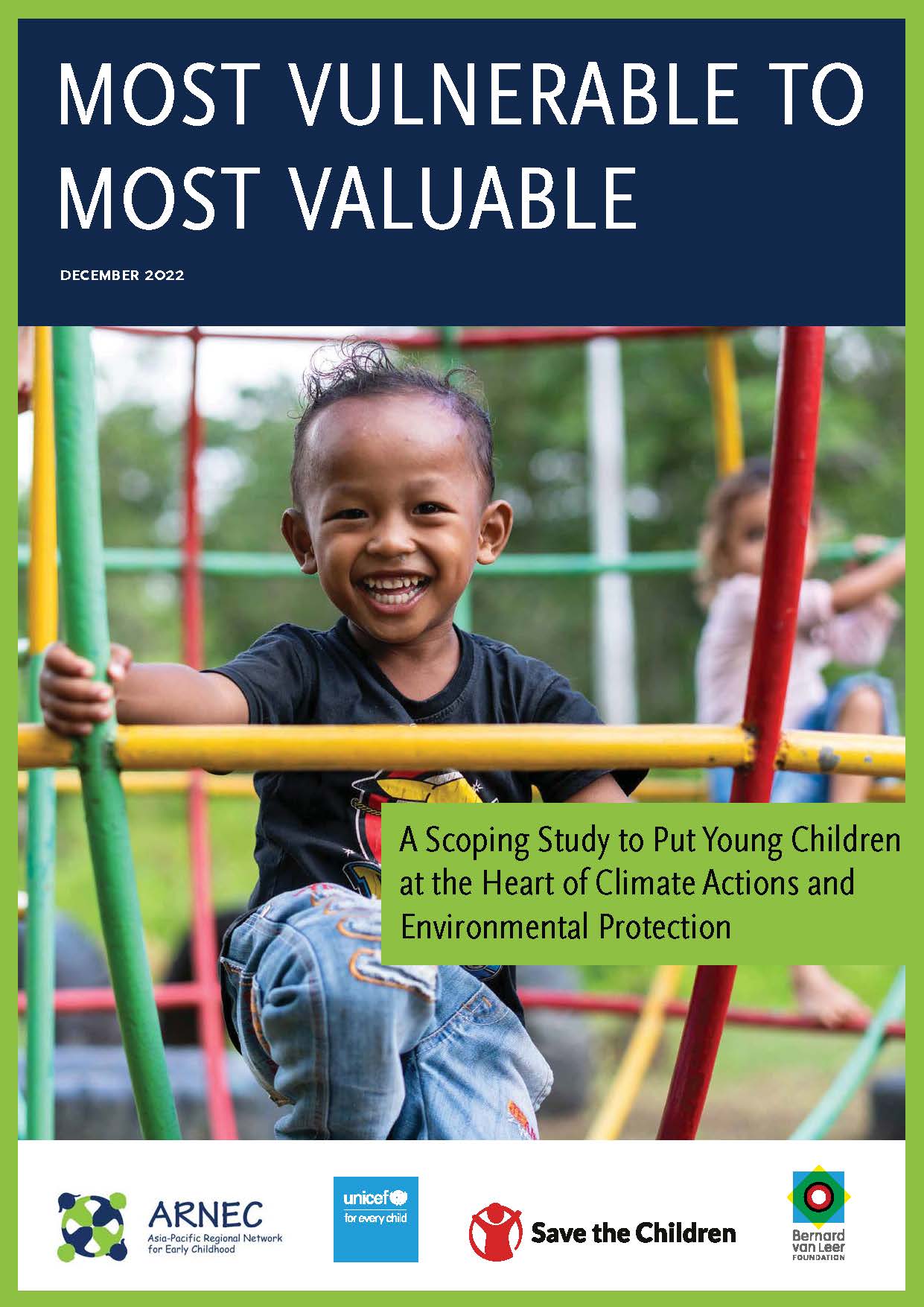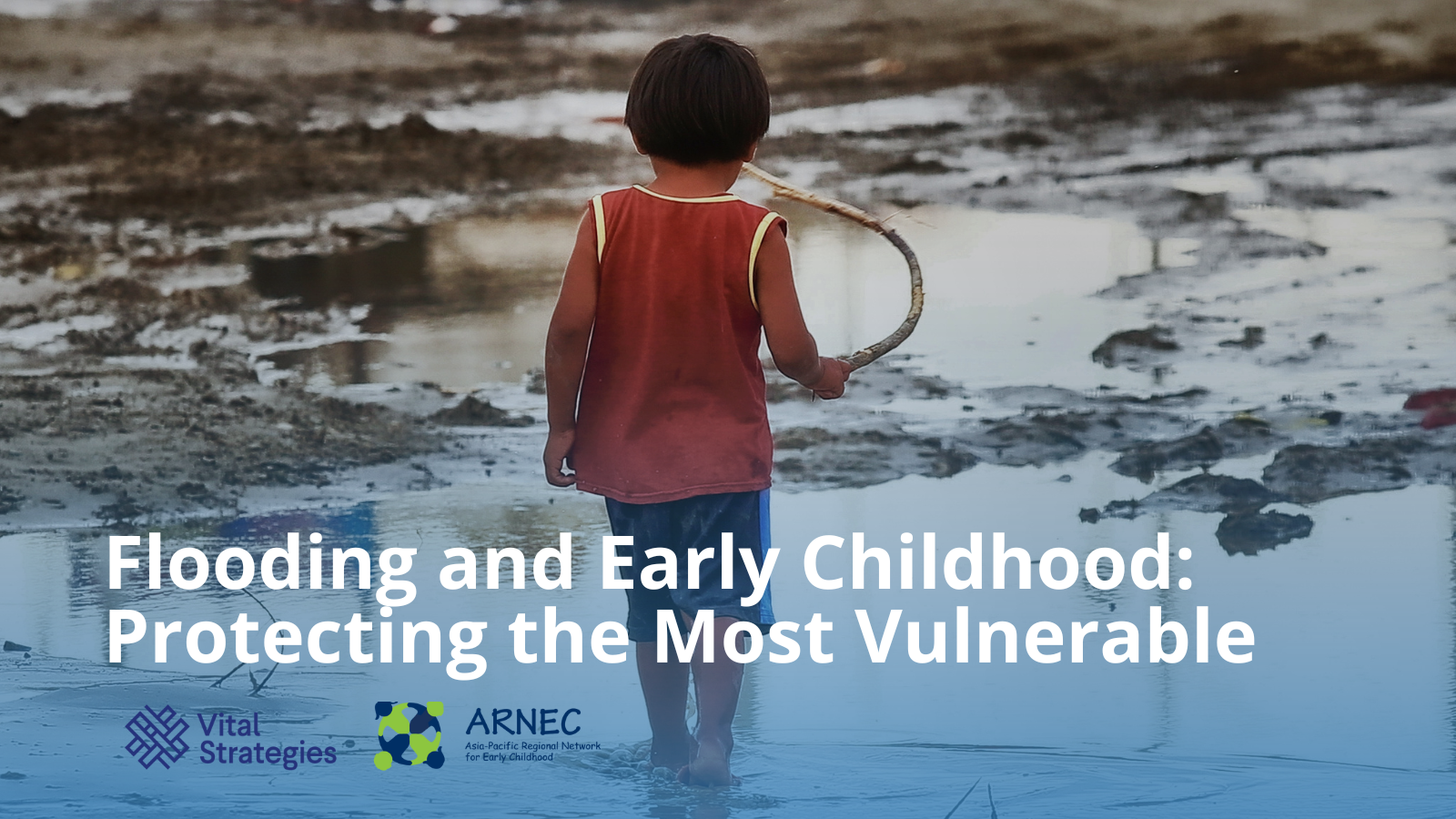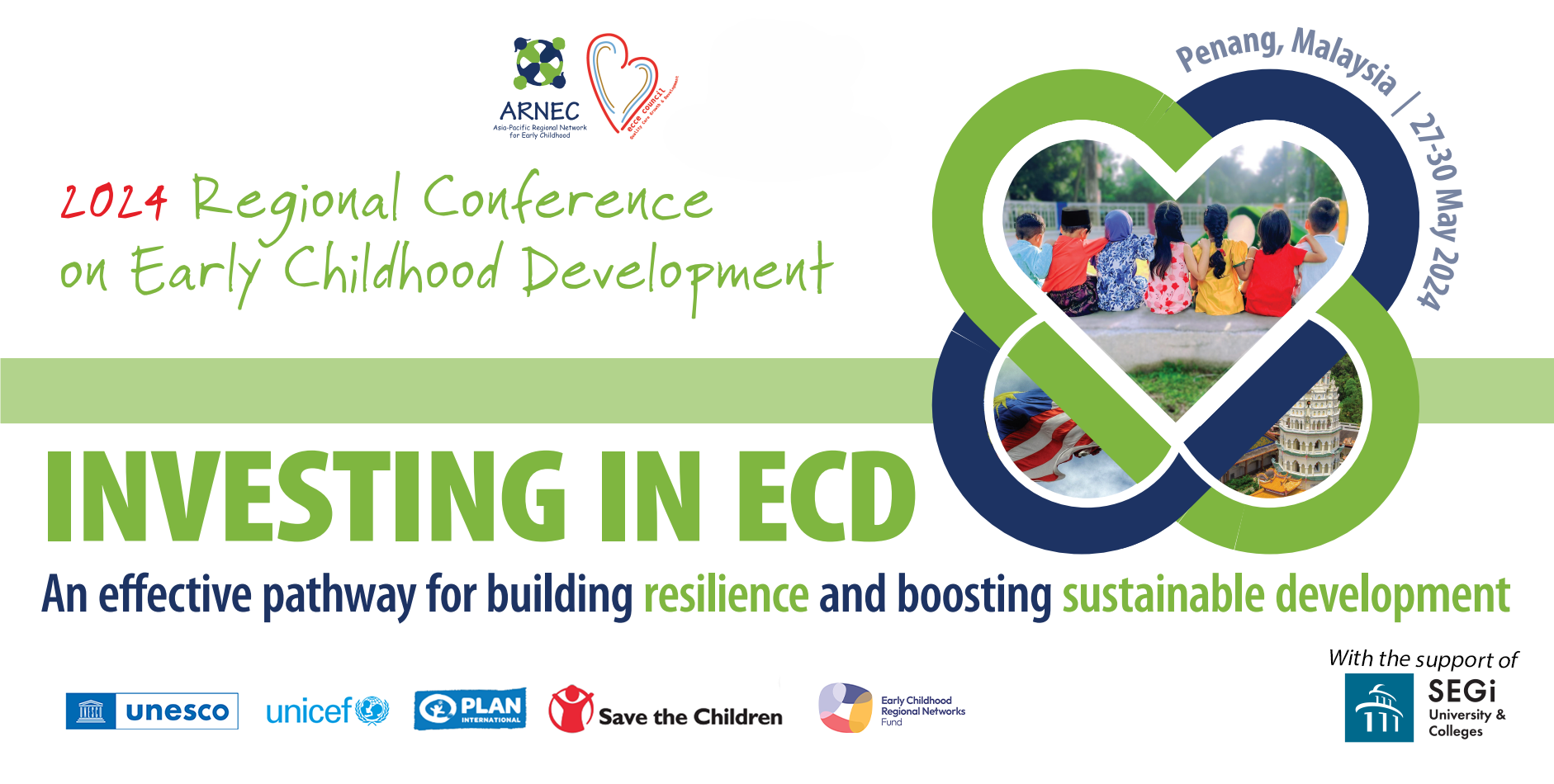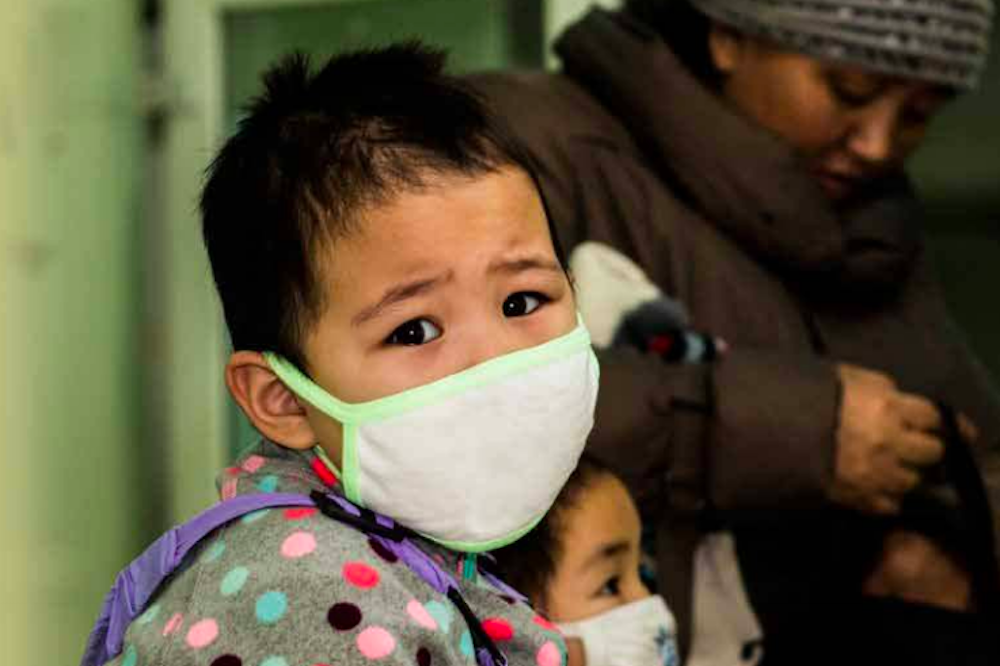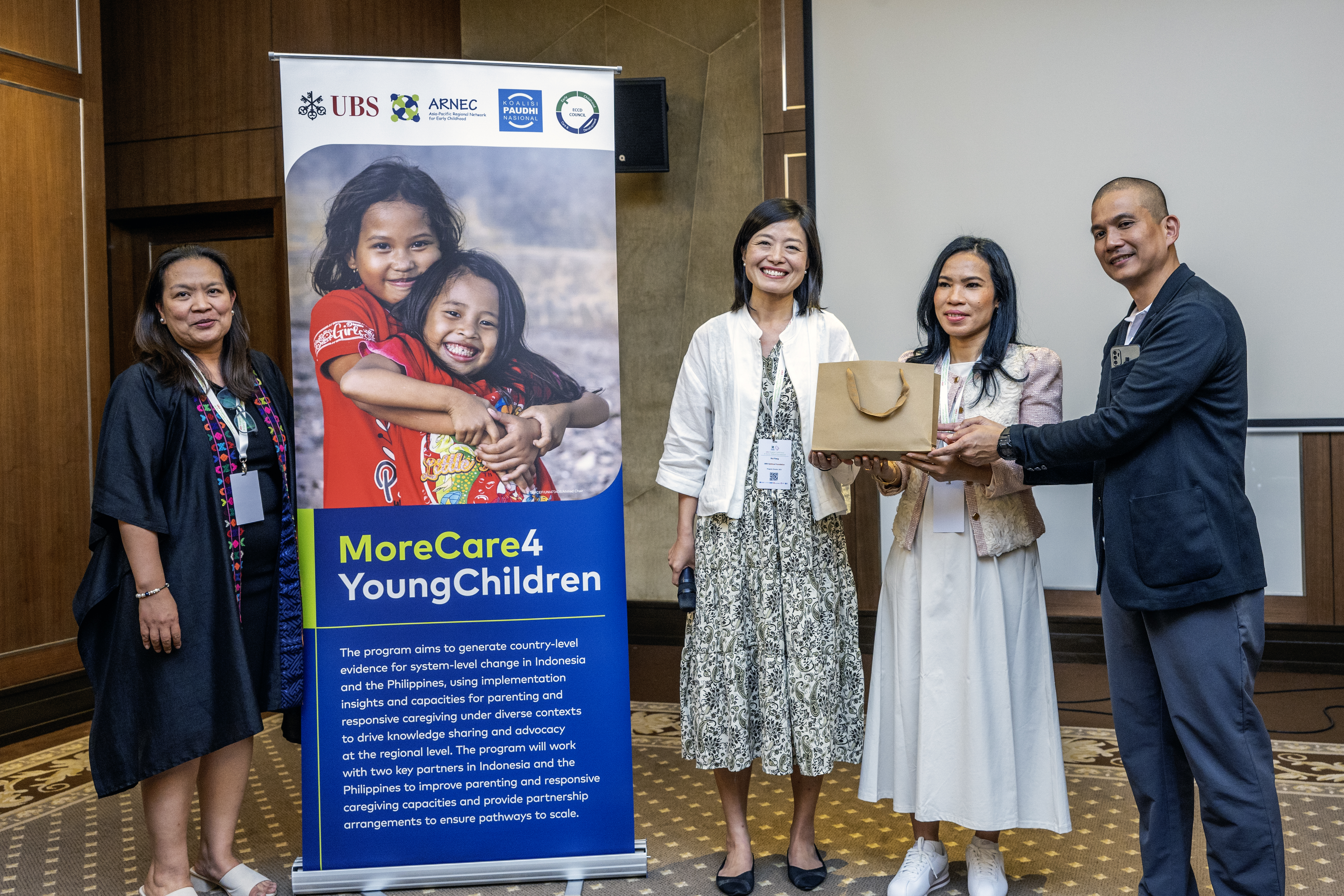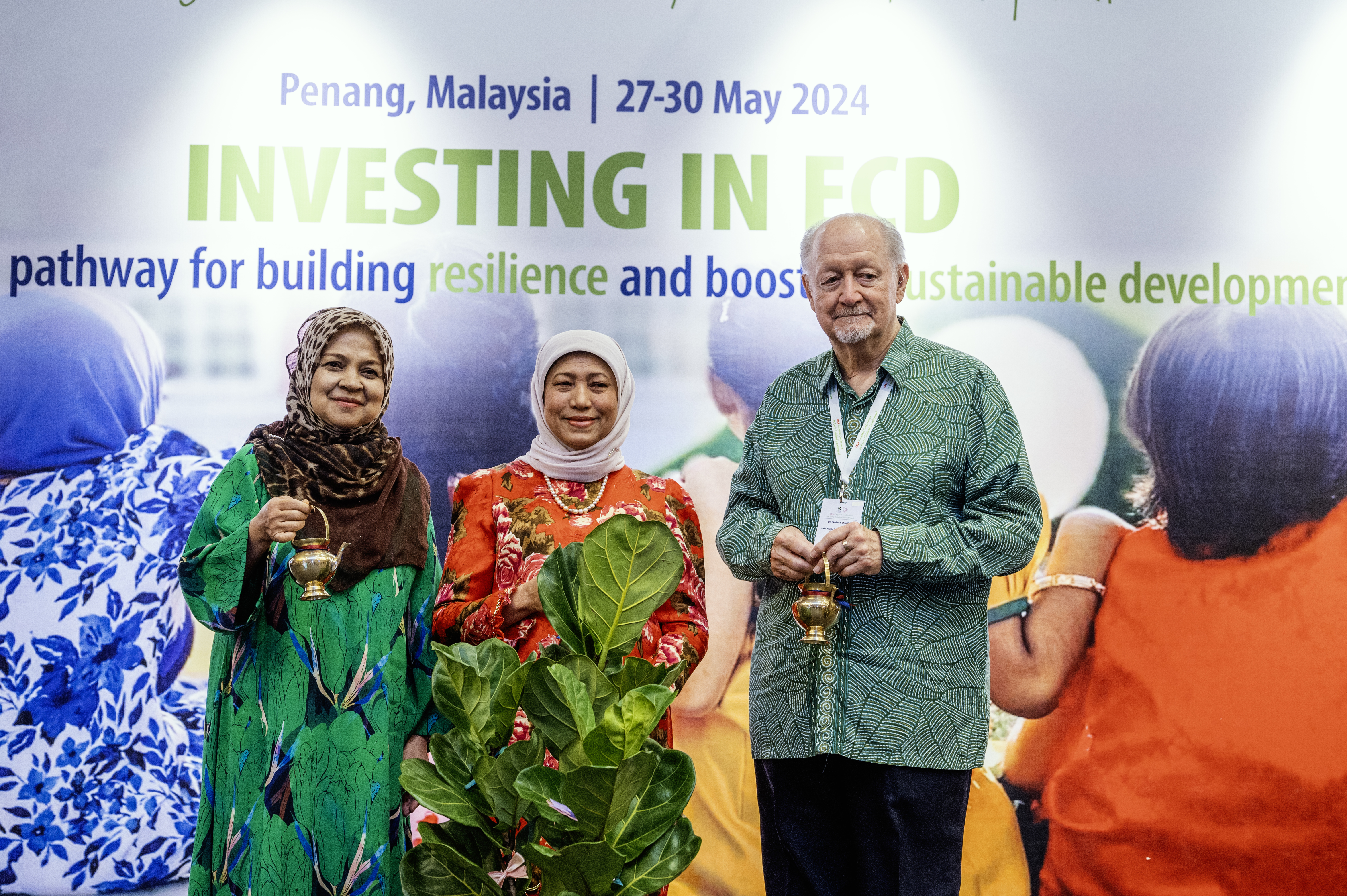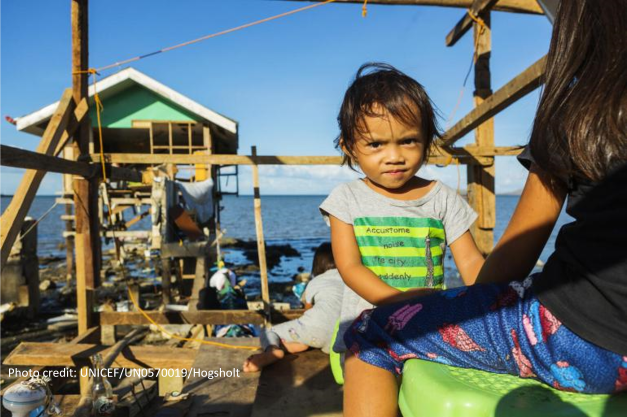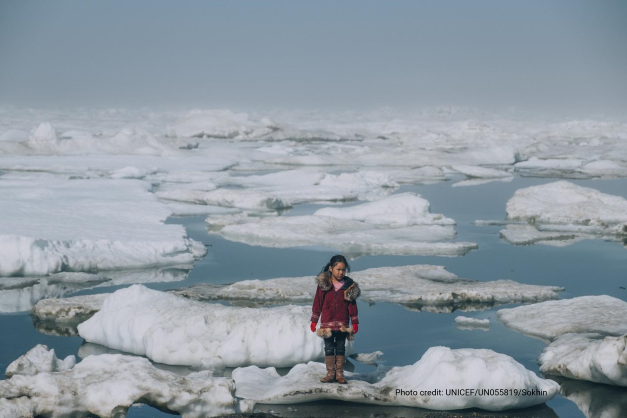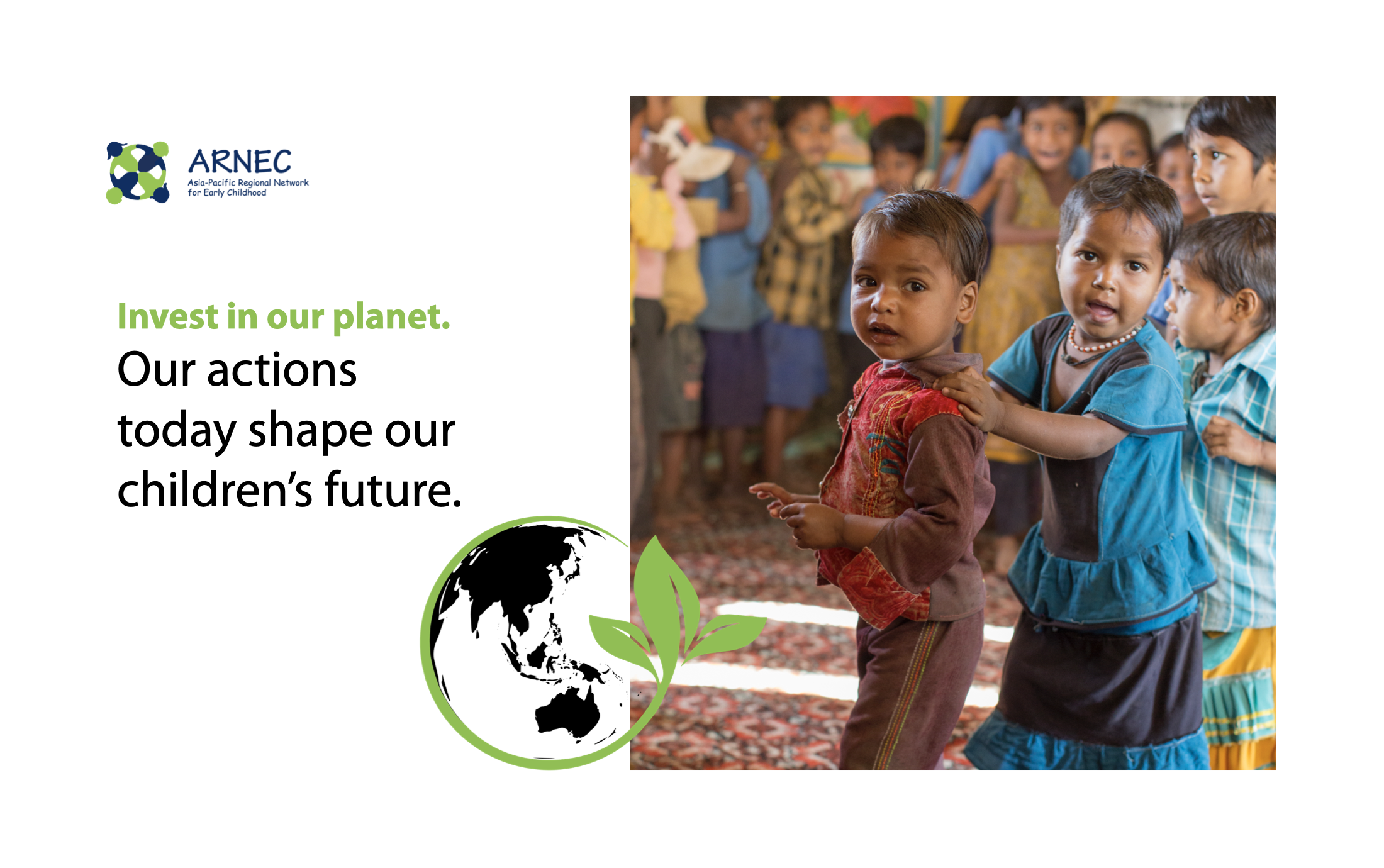Climate change is the most urgent challenge of our time, with consequences that are already being felt across the globe. Rising temperatures, more frequent and severe natural disasters, shifting weather patterns, and increasing sea levels are all reshaping the world in unprecedented ways. These changes not only threaten ecosystems and food security but also pose significant risks to vulnerable populations, especially young children.
ARNEC recognizes the need to address the intersection of climate change and early childhood development. Young children are the most vulnerable to the impacts of climate change and environmental degradation. But they are also our most valuable asset to fight against it.
At ARNEC, we beileve that policies and programs on Early Childhood Development (ECD) provide a cost-effective, comprehensive, immediate, and enduring path to achieving Climate Resilience and Sustainable Development. Learn more about climate change and its impact on young children, and explore ARNEC's initiatives on Climate Change and Early Childhood on our Knowledge Hub.
ARNEC's Knowledge Hub serves as a resource platform to help stakeholders understand the unique risks posed to young children by climate change, and find lasting solutions. It aims to provide valuable insights, research, and tools to support the protection and promotion of early childhood development in the face of these environmental challenges.
To go to the knowledge hub, click on the left blue tab below.
To join our Linkedin learning group where we share and discuss the intersections between early childhood development and climate change, click on the right tab below.
For any other details, you can also write to us at climate.arnec@gmail.com.
ARNEC Resources
Access the latest reports and resources to promote holistic and inclusive ECD.
